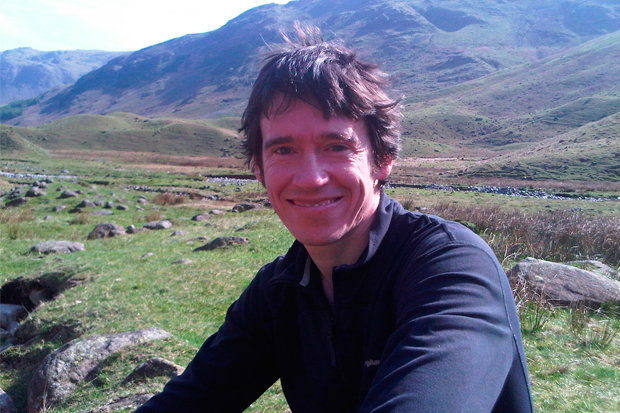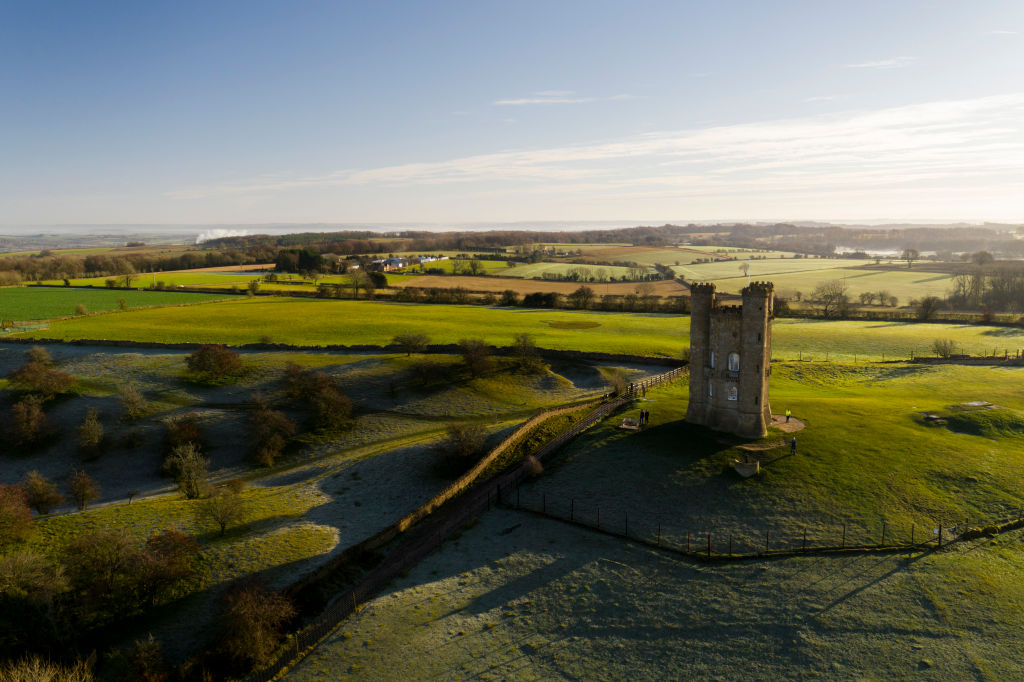‘You will hear of him at little forgotten fishing ports where the Albanian mountains dip to the Adriatic. If you struck a Mecca pilgrimage the odds are you would meet a dozen of Sandy’s friends in it. In shepherds’ huts in the Caucasus you will find bits of his cast-off clothing, for he has a knack of shedding garments as he goes. In the caravanserais of Bokhara and Samarkand he is known, and there are shikaris in the Pamirs who still speak of him round their fires. If you were going to visit Petrograd or Rome of Cairo it would be no use asking him for directions; if he gave them, they would lead you into strange haunts. But if Fate compelled you to go to Lhasa or Yarkand or Seistan he could map out your road for you and pass the word to potent friends.’
That’s Richard Hannay introducing Sandy Arbuthnot, late of Eton, Oxford, the diplomatic service and the Tweedale Yeomanry, in John Buchan’s best – and surprisingly contemporary – shocker, Greenmantle.
Yesterday, the closest thing that British politics has to Sandy Arbuthnot tweeted:
‘Someone has just driven 30 minutes to get here to talk and just found me, having been searching fruitlessly in McDonalds – so if anyone is looking for me I’m now in Costa opposite Barking station’.
Rory Stewart is not running your usual campaign for the Tory leadership.
But, as he says, ‘It is so deeply refreshing to get out of the bubble and see a thousand opportunities for a government that actually wanted to get things done’.
His meet-the-people tour, documented with an endearing lack of slickness on social media, is part of that. It’s also, plainly, calculated to offer an alternative to the campaigns being run by his rivals and to transform Stewart’s long-shot status from a weakness to a strength. If this is a moment for imaginative Toryism, he might be the man for you.
Of course there are warning flags. First, he appeals to people like me and that’s enough to make me doubt Stewart’s prospects. Then there is the hint of impermanence that surrounds him; his back story is remarkable and he has been to many places and done many things. But what has he actually achieved? This is a fair question, though the answer – developed some understanding of the ways in which the world works – is likely to be just as fair even if it is also, perhaps, unsatisfying.
But there is a questing quality to Stewart that’s both unusual and endearing. There are plenty of places in between in Britain and it’s unusual to see a would-be Tory leader taking them seriously.
I fancy Stewart might be better-placed to become leader of a Tory party in opposition than in government but he is, nonetheless, the cleanest skin in this contest. He might fail but he would most likely fail in a more interesting way than some. I appreciate that’s more useful and more appealing to journalists than to ‘ordinary’ voters.
Still, there’s a modesty too: Stewart has been one of the few ministers to bat for Theresa May’s doomed withdrawal agreement. We need to deliver a manageable, deal-based, Brexit but we also need to look far beyond that. We need to have a real discussion about politics and what it can achieve and this needs to be done seriously. You can’t get the right answers if you don’t have the right, or at least interesting, questions. It’s a great game but it’s much more than a game; one reason why Stewart says he couldn’t serve in a government led by Boris Johnson.
He considers himself a member of the lower-upper-middle classes which means – despite this accent – he’s quite posh but not properly so. Eton and Oxford, yes, but also – if briefly – the Black Watch and, eternally, Scotland too. I suspect he thinks of himself as an outsider on the inside; a member of the club but in some vague way not quite a full, or born, one.
In one sense this is preposterous. Stewart’s father was a big number in the Secret Intelligence Service and his own career has bounced from one elite posting to another. There was his recruitment as tutor to Princes William and Harry, a spell in the FCO – about which he is unusually coy – and another at Harvard. And that’s before you get to his trek across Afghanistan after 9/11 or his spell as a governance-co-ordinator in post-Saddam Iraq. It’s not your usual Tory CV.
There’s a hankering for adventure and for greatness, certainly. Not many MPs these days are comfortable talking about Achilles; fewer could do so without seeming absurd. But Stewart is a rarity in British politics: an actual romantic, albeit one whose romanticism is tempered by an awareness of the limitations imposed by resources, commitment, and time.
That’s at the essence of his Toryism, I think. On a practical level, he’s not always been a Conservative. He’s supported Labour in the past. But spiritually – if we can talk in such terms – he’s obviously, abundantly, a Tory. A Unionist, too, which still matters for some of us.
During the 2014 independence referendum Stewart had the idea of building a new monument to the ties that bind Scotland and England (and the other parts of the United Kingdom) together. The Auld Acquaintance cairn, near the border at Gretna, would be, he hoped, ‘a lasting marker of our union, something that future generations will look back at and remember, with deep gratitude, the moment we chose to stay together’. This was very Stewartish: slightly unworldly, romantic, and easily mocked. But even if Rory’s Cairn has been largely forgotten now, there are reckoned to be 100,000 stones there, brought to it by people from all across the United Kingdom. And it is still there.
Which is another way of noting that unity and common purpose are not new notions for Stewart. When he talks about bringing people together he actually means it. Is that enough? In truth, I don’t know but it feels refreshing at this moment.
That sense expresses itself in the importance Stewart evidently attaches to place and the respect he feels for the old ways. Sometimes those must be improved on but improvement, while necessary, is rarely cost free. Things that matter are lost too. It’s a question of sensibility and Stewart is a tory of the Edmund Burke variety not, like some of his rivals, a devotee of Ayn Rand.
He once told a journalist for The New Yorker, who was profiling Stewart and didn’t, I think, quite know what to make of him, that ‘If we can do less than we pretend, we can do much more than we fear’. He was talking about the Americans and their NATO allies in Afghanistan but this seems a useful distillation of his current politics too and a classically conservative one too. It’s a question of balancing ambition with opportunity and resources with time.
And yet Stewart’s campaign for the Tory leadership still feels extravagantly Quixotic. As one high-level Tory told me, ‘I love Rory, but he’s got no chance’. At present Victoria Prentis is, I think, the only MP to have declared for Stewart though others, including – I think – Nicholas Soames, are sympathetic to his cause.
No one without ego can aspire to high office and mean it seriously. But Stewart is saved, I suspect, from ridiculousness by his own awareness of his ridiculousness. Perhaps it won’t, can’t, work but it has to be worth a shot.
As I type this, he’s on his tour again, ‘in the slightly absurd setting of Kew Gardens, partly because as DfID minister we’re doing some very interesting work with cocoa farmers…’
Tomorrow he’s in Wigan. If you see him, it might be worth saying hello.
This article was originally published on The Spectator’s UK website.

























